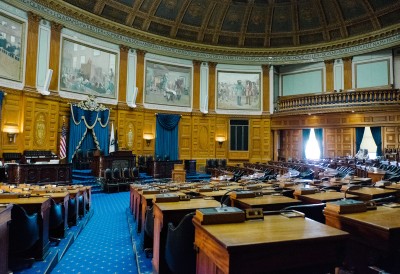
The Massachusetts Senate proposed new legislation to help reform the commonwealth’s current public records law, according to a Thursday press release from the American Civil Liberties Union of Massachusetts.
The Senate will vote on the bill this week and, if passed, the new law will award attorneys’ fees to citizens whose access to public records is wrongly denied, limit the fees that agencies can charge citizens to access their records and require agencies to respond to requests within 10 days, according to the release.
In the release, Carol Rose, executive director of the ACLU of Massachusetts, praised the Senate’s continued efforts to reform the existing public records laws.
“These are the practical, tested reforms that are needed to make the law more than just empty words on a page,” Rose said in the release. “We’ve described the current law as a flashlight without working batteries. This proposal from the Senate would recharge it by improving enforcement and affordability.”
Rose said in the release that Sen. Karen Spilka (D-Ashland) deserves recognition for spearheading the legislation.
“The Senate President and Chairwoman Spilka deserve a lot of credit for putting out an excellent piece of legislation, and we hope they’ll fight to keep it strong,” Rose said in the release.
The new legislation comes as a response to criticism that the Massachusetts public records law is among the weakest in the country, the release stated. In November, the Massachusetts House of Representatives passed a weaker version of the bill that many believed was not good enough.
Margaret Burnham, a law professor at Northeastern University, said the passing of the new legislation is necessary to make sure Massachusetts’ public records law is up to the standards of the rest of the country.
“This is a critical step forward in bringing Massachusetts legislation into the norm for public records disclosure,” Burnham said. “Other states have similarly expanded access to public records and in today’s world, where so much information is readily available, government agencies have to also step up to the plate and be sensitive to the needs of the public.”
Burnham said in the face of potential overturned legislation, it is important that the needs of residents are still met.
“Researchers and members of the general public need to obtain information quickly, easily and without unnecessary expense, while at the same time protecting the legitimate privacy concerns of both individuals and government,” Burnham said.
Jessica Silbey, a law professor at Northeastern University, wrote in an email that the new legislation’s strong focus on the public deserves plenty of praise.
“Any policy that liberalizes the publics’ access to government decisions is good for the government, and it makes law and the rule of law more legitimate,” Silbey wrote. “A law like this that streamlines access to records and provides incentives for the government to comply with requests to records, I think will strengthen our democracy.”
Several residents agreed that passing the bill would prove beneficial for the general public.
Mark Hodges, 65, of Kenmore, said he believes passing the bill will be the right thing to do for the public.
“I would be in favor of no fees being charged against the public,” he said. “The public should have free access to records without corporations putting a fee on it.”
Garrett Lane, 26, of South Boston, said passing the bill would be a good opportunity to promote transparency.
“If it’s just a matter of having people have a lot more transparency, to get any information that’s needed from the government that it’s a great idea,” he said. “Especially now with classified information being publicized, especially from Hillary [Clinton], who you’re seeing in the news. I think in the spirit of transparency, [the bill] is a great idea.”
Liette Marcil, 37, of South End, said everyone should have access to documents.
“They are called ‘public’ records because they are supposed to be open to the public,” she said. “Everyone should have access to them and be able to view them.”






















































































































